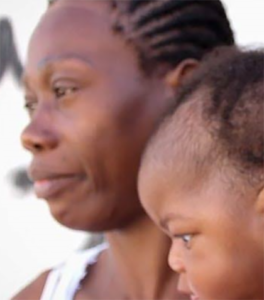Europe facing a lost generation of refugees
Europe is in danger of creating a ‘lost generation’ of young refugees who have fled war and persecution in their countries but lack opportunity in exile, according to the European Union’s (EU) human rights agency.
The Agency for Fundamental Rights (FRA) says it had identified serious challenges in integrating people aged between 16 and 24 across the EU.
 It has urged member states to speed up asylum procedures, simplify family reunification and provide more housing.
It has urged member states to speed up asylum procedures, simplify family reunification and provide more housing.
From 2015 to 2018, almost two million people received protection in the EU.
The FRA has released a report based on interviews with refugees and frontline staff in Austria, France, Germany, Greece, Italy and Sweden that identifies “serious obstacles’ for young people seeking asylum across the bloc.
It has called on countries to implement “smart investments” to help encourage successful integration.
“This report aims to contribute to reflection on how to achieve this, thus making sure that a whole generation will not be lost,” the report say.
Among the issues raised was that young people were being made homeless and forced to live on the streets in some cases while their asylum applications were dealt with – a process that could take months.
An improvement on the provision of mental healthcare for traumatised young refugees was also needed, the also FRA said.
It said that adding that providing young people with education services was also fundamental.
The FRA urges EU countries to tackle issues, relating to:
Asylum: It takes an average of two years to complete the process for a residence permit. More financial and human resources are needed to process claims more quickly;
Housing: Many asylum seekers, including families, have had to live in poor conditions, sleeping in tents, shipping containers, camps and at sports facilities. Refugee housing policies must be able to deal with “large-scale arrivals” properly;
Mental health: Traumatised refugees are often unable to sleep, drink or eat properly as they wait to be processed, it says. Swift and efficient identification, referral and treatment are needed – including training for frontline workers;
Education: Some children wait a year to attend school. Asylum applicants should be granted early access to education, vocational training and employment to prevent them turning to a life of crime, and;
Family reunification: People face a drawn-out, complex and expensive procedure – providing numerous documents and travelling across war-torn countries – if they want to bring their families. Family reunification is recognised as one of the key mechanisms for better integration of migrants and refugees. Quick, affordable family reunification will help dissuade asylum seekers from using people smugglers.
The FRA report has also highlighted some good local policy initiatives and calls on EU states to learn from each other and give young refugees an adequate chance in life.
Among the initiatives mentioned by the FRA is a program in Vienna, where the city government financially supports individual housing for asylum applicants upon arrival. The FRA says this is the best housing arrangement to foster integration and does not require alternatives to be found when asylum is granted.
It also mentions work in Milan, where police staff dedicate one day a week to asylum claims lodged by children. Allowing all administrative steps – including photo identification – to be done in a day.
In Germany, the report says, official have developed an app – run by people who have fled their own countries – that uses multimedia such as video to answer questions about life in Germany: asylum, housing, health, employment and childcare. It is part-financed by private companies
More than two-and-a-half million people applied for international protection in the EU between 2015 and 2016, according to the European statistics agency, Eurostat.
The number of those applying for asylum has decreased since then, with the latest figures for 2018 totalling almost 650,000.
Read the full report here: https://fra.europa.eu/sites/default/files/fra_uploads/fra-2019-integration-young-refugees_en.pdf












